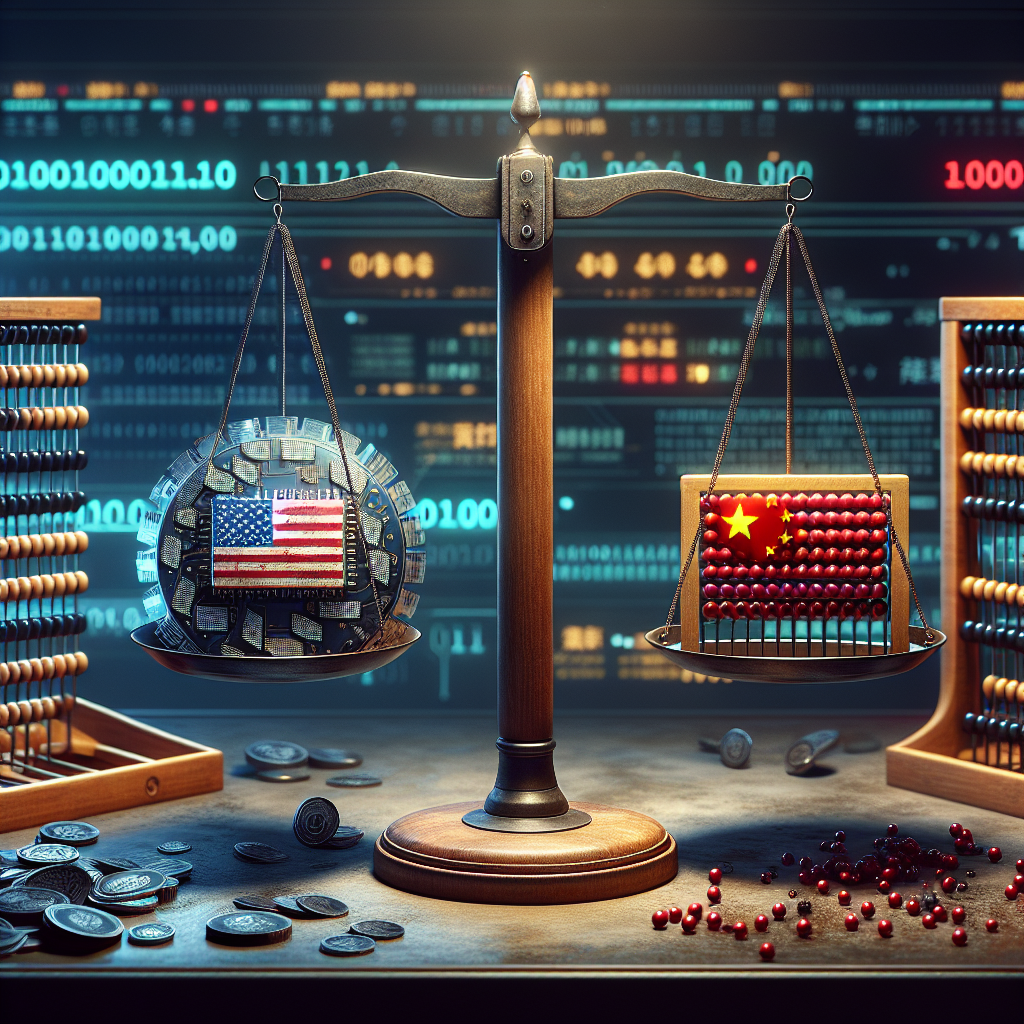The US China Deal: A Turning Point for Technology and AI Innovation
The recent China Deal marks a significant milestone with the potential to reshape the global technology and artificial intelligence (AI) landscape. After years of intense rivalry and trade tensions, this agreement opens the door for new collaboration, investments, and regulatory understanding between two of the world’s biggest tech powerhouses. As innovation accelerates and AI becomes increasingly integral to numerous industries, the China Deal could redefine how companies, governments, and consumers interact with technology on a global scale.
Understanding the Scope of the China Deal
Bridging Economic and Technological Divides
The China Deal is not just a trade agreement; it is a strategic pact aimed at addressing the multifaceted challenges that have long complicated economic exchanges between the US and China. Beyond tariffs, this deal introduces frameworks for intellectual property protection, technology transfer, and joint research initiatives. The goal is to create a more balanced and transparent environment that encourages innovation while safeguarding competitive advantages.
Enhancing AI Collaboration and Governance
One of the most noteworthy aspects of the China Deal is its commitment to cooperation in AI development and governance. Both nations recognize AI’s transformative role in sectors like healthcare, transportation, and cybersecurity. The agreement promotes shared standards for ethical AI use, data privacy, and transparency. This sets a foundation for collaborative research and responsible deployment, fostering trust and reducing the risks of AI misuse.
The Impact on Tech Industries and Startups
Unleashing New Investment Opportunities
With the China Deal in place, businesses in both countries can expect a more predictable and favorable environment for investment. For startups and technology companies, this means access to broader markets, streamlined regulatory processes, and collaborative ventures. Investors are likely to see reduced geopolitical risks, leading to increased funding and joint innovation projects.
Accelerating AI Research and Commercialization
The enhanced cooperation on AI will accelerate both fundamental research and its real-world applications. Shared data resources, cross-border talent exchange, and joint innovation hubs could speed development in machine learning, natural language processing, and automation technologies. Startups leveraging AI may find new pathways to commercialization, benefiting from combined expertise and infrastructure.
Challenges Remain Despite the China Deal
Navigating Regulatory Complexities and Security Concerns
While the China Deal paves the way for collaboration, it does not eliminate all regulatory and security challenges. Both countries maintain concerns over data sovereignty, cyber espionage, and national security. Continued dialogue and policy refinements will be necessary to balance openness with protecting critical infrastructure and sensitive information.
Balancing Competition and Cooperation
The tech rivalry between the US and China is deep-rooted, driven by differing political systems and strategic priorities. The China Deal aims to shift this dynamic toward cooperation, but competition will persist in areas like semiconductor manufacturing, quantum computing, and 5G technologies. Companies must navigate this dual landscape carefully, balancing collaboration opportunities with strategic competitiveness.
Key Areas Poised for Transformation
Semiconductor Industry and Supply Chains
Semiconductors are central to technological innovation, and the China Deal influences supply chains profoundly. By encouraging joint production and ensuring supply chain resilience, the agreement aims to prevent future disruptions like those seen during recent trade conflicts. This could lead to diversified supply sources and co-development of next-generation chip technologies.
Healthcare Technology and AI Applications
Healthcare is a promising area for the China Deal’s impact, especially with AI-driven diagnostics, telemedicine, and drug discovery. Collaborative efforts can help tackle global health challenges, improve data sharing under regulatory compliance, and speed the introduction of breakthrough healthcare solutions in both markets.
Smart Cities and Infrastructure Development
AI-powered smart city initiatives benefit immensely from cross-border collaboration. The China Deal supports partnerships to develop smart infrastructure, sustainable urban planning, and intelligent transport systems, enabling cities to become more efficient, livable, and responsive to residents’ needs.
Moving Forward: What Businesses and Innovators Should Do Now
Stay Informed on Regulatory Changes
Businesses must closely monitor developments related to the China Deal to leverage new opportunities and remain compliant. This includes changes in export controls, data privacy laws, and intellectual property protections that directly affect technology transfer and innovation.
Explore Joint Ventures and Collaborative Projects
The China Deal fosters an environment conducive to partnerships. Technology firms and AI startups should actively seek collaborative projects, pilot programs, and research exchanges that align with the agreement’s objectives to maximize growth potential.
Invest in Cross-Border Talent and Knowledge Sharing
Talent remains one of the most valuable resources in tech and AI. Companies should consider hiring or partnering with experts from both countries to accelerate innovation and foster diverse perspectives, aligning with the China Deal’s spirit of cooperation.
Stay Ahead by Embracing Responsible AI Practices
The emphasis on ethical AI in the China Deal highlights the importance of transparency, accountability, and fairness. Organizations that integrate these principles into their AI development and deployment will benefit from enhanced trust and broader acceptance in both markets.
The China Deal represents a historic opportunity to unify the efforts of two technological giants for mutual benefit. By fostering cooperation, protecting innovation, and addressing shared challenges, it opens pathways to unprecedented advances in technology and AI. Businesses, policymakers, and innovators must seize this moment to collaborate deeply and chart a future where technology drives inclusive and sustainable growth.
For those looking to navigate this evolving landscape effectively, reaching out to experts can provide tailored strategies and insights. Connect with us at https://automatizacionesaiscend.com to learn how your business can thrive in the new era shaped by the China Deal.



